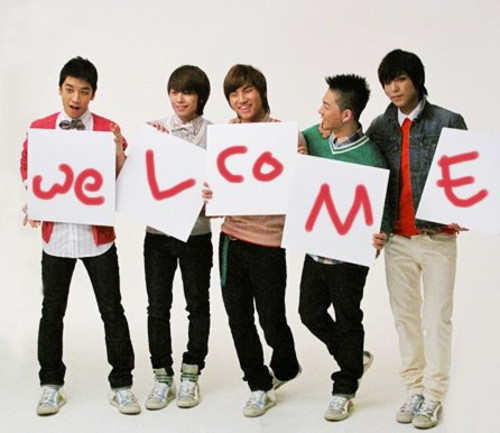Kaetrena Davis Kendrick, M.S.L.S
University of South Carolina Lancaster
Collaboration is an often-cited characteristic of Digital Humanities (DH) projects (Jӧttkandt 2008, Liu 2009; Honn & Morse 2013); however, does that collaboration signal something more? What kinds of relationships are created due to (or outside of) those projects? What other problems are solved as a result of shared work in DH projects? Perhaps some answers to these questions are found in the idea of communities of practice.
Communities of Practice

Communities of practice (CoP) are groups of people who share a concern, problem, or passion about a topic and who expand their knowledge in these areas by meeting periodically. When they meet, they discuss these concerns, bring questions to the group for insight, introduce and explore new ideas, and share what they have learned with others in the group (Wenger, McDermott and Synder 2002). The ongoing result of CoP is a process of collective education within the context of a shared goal, and that education helps the group improve and resolve issues within their domain of work (Wenger, n.d.). CoPs also focus on or engage in:
-
common professional interests
-
problem resolution
-
knowledge discovery and sharing
-
assistance in practice
-
building or recognizing synergy and affinity
-
documentation
-
gap-filling
KPK as CoP
In the literature, CoP examples often are illustrated as belonging to the same profession or engaging in similar regular activities: a group of doctors, car thieves, or auto workers working in a manufacturing plant. In contrast, KPK members practice different professions (English professor vs. academic librarianship), but our shared identity as Kpop fans, common work environments (college campuses), similar professional activities (publishing, teaching and learning, service work) and topical concerns (Hallyu preservation and documentation) move us beyond our desire to collaborate on projects like KPOPIANA and bring us into a CoP. I have found that the KPK CoP is a dual one: our interactions develop our collaborative KPK projects and positively impact our discrete work as college faculty, too.

Since DH is constantly changing, KPK members meet virtually and in-person as often as we can to discuss this evolution and how it affects our Hallyu preservation work. These discussions usually center around technology discovery (e.g, “What tools will help us…?”), protocol documentation (e.g. “How should we deal with…?”), and knowledge creation (e.g., “What should we know about…?”). In equal measure, we also are concerned with professional development, scholarship, and pedagogy. More often than not, we have found that many solutions for KPK concerns have also been applicable to our daily practice of teaching or librarianship. As an example, Dr. Anderson and I originally used Screencast-O-Matic (a screen capture tool) to train KPK members in virtual environments; however, during many conversations about student engagement, we discovered that we were also using the tool in our independent areas of practice: Dr. Anderson uses Screencast-O-Matic to offer feedback to her students, while I use the tool to record best practices for information-seeking during research consultations with students and other faculty.
The Bigger Picture
As a CoP, KPK does not end with its current members. Because of the nature of our work, we are constantly seeking new insight from others who have lay and formal knowledge of Korean popular culture and best practices in DH. While we are a unique project, we want to learn what others are doing, what challenges they have experienced, and how they have overcome these challenges in the pursuit of scholarship and open access to information. We also are keen to collaborate with passionate individuals and groups who are committed to these principles, regardless of the subject matter.

KPK is more than a DH project: it’s a sounding board for the continuous improvement of higher education, a sandbox for pedagogy improvement, a town hall for voicing big ideas, and a warehouse for scholarly production. Our CoP interactions improve KPK’s operations and give us opportunities to enhance our larger academic networks. We take what we learn in our small group and apply that knowledge to training our colleagues, educating students, and increasing access to scholarly communication. In this way, we become progressive thought leaders on our respective campuses and (hopefully) positive influences on communities unknown to us in the first place. Doesn’t that make for an improved community overall? I think so.
Sources
Honn, J. & Morse, G. (2013). Digital humanities (101). Retrieved May 11, 2013 from http://acrl.ala.org/dh/2013/03/27/digital-humanities-101/
Jӧttkandt, S. (2008). Free/Libre scholarship: Open humanities press. Retrieved from http://openhumanitiespress.org/Jottkandt-03-april-08-Irvine-talk.pdf
Liu, A. (2009). Digital humanities and academic change. English Language Notes, 47(1), 17 – 35.
Wenger, Etienne, McDermott, Richard A., & Snyder, William. (2002). Cultivating communities of practice: A guide to managing knowledge. Boston: Harvard Business School Press.
Wenger, Etienne. (n.d.). Communities of practice: a brief introduction. Retrieved October 1, 2013, from https://scholarsbank.uoregon.edu/xmlui/bitstream/handle/1794/11736/A%20brief%20introduction%20to%20CoP.pdf?sequence=1
Also of Note: The Journal of Digital Humanities’ latest issue focuses on CoPs in the field.

This work is licensed under a Creative Commons Attribution-NonCommercial-NoDerivs 3.0 Unported License
3 Comments Add yours